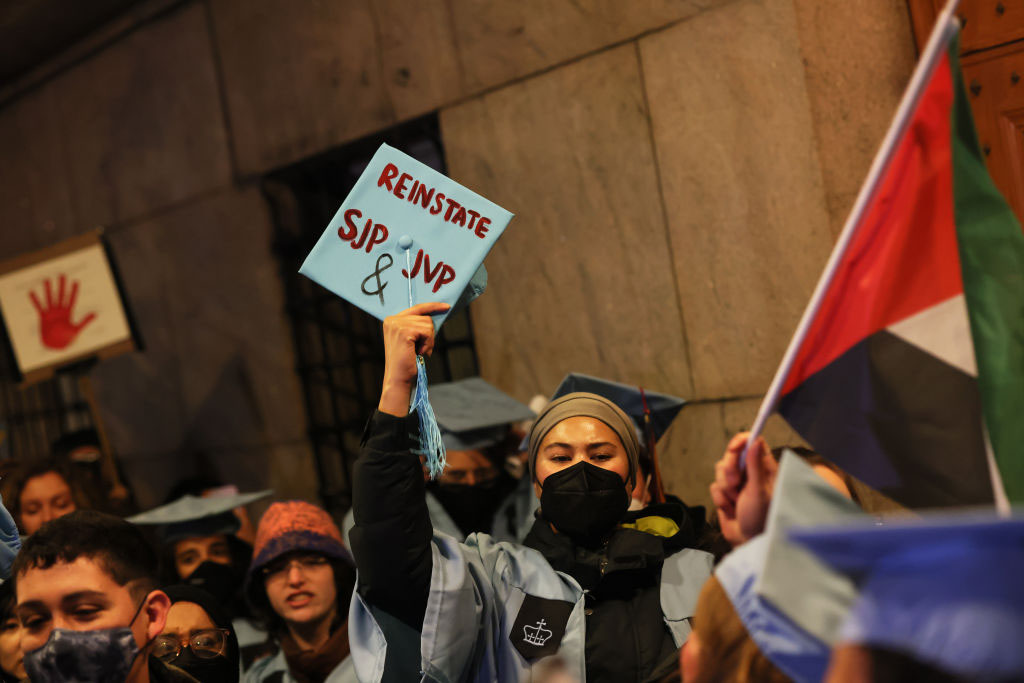"The money you give gave me a mom and a dad."
Forgive Lee Wallach if he sounds like a commercial for the organized Jewish community. Wallach says he owes his life to the Los Angeles Jewish community, and he is worried that the current economic downturn might endanger the service programs that guided him from an orphanage to a successful — and Jewish — life.
"The money we give is clearly about lives," Wallach says, referring to the Jewish community. "Like the life of the little boy who found himself stuck in the L.A. social welfare grind at age 3. Vista Del Mar found this little guy a Jewish home. He had after-school care, Jewish summer camps, Jewish mentors. When it came time for college, Jewish Free Loan helps this guy. Hillel sends him on his first trip to Israel.
"Did it stop there? It still didn’t stop. JVS [Jewish Vocational Service] steps in, and he ends up working for The Federation while he’s getting money for two masters’ degrees." Now owner of a successful court reporting firm and married to a woman he met at Hillel, that boy, Wallach, worries for the future of the Jewish programs that worried about him.
The service programs that have made such an impact on Wallach’s life are in danger of falling short next year as the effects of the Sept. 11 attacks and the economic downturn impact philanthropic decisions. "It’s affecting all giving. We gave money to aid families in New York, and rightfully so," Wallach says. "But there are still issues going on in our communities. There are still kids without parents, women being abused, people with AIDS — these are real people."
The Jewish Federation of Greater Los Angeles, $5 million short of its year-end fundraising goal, has already reinvigorated its drive. Other Jewish social service programs throughout Southern California are bracing for a recessionary double whammy of increased need and decreased donations.
At Bet Tzedek Legal Services, Executive Director David Lash sees the recent waves of layoffs as a portent for increasing need of his organization’s services: the wage claims, the evictions, the whole range of legal and financial troubles that follow in the months after a family breadwinner loses a job. "The economy is affecting a lot of people. When the economy worsens, the calls to Bet Tzedek go up. I don’t think that the full impact has yet been felt," Lash predicts.
Jewish Free Loan Association (JFLA) makes interest-free loans to families, students, entrepreneurs and for a variety of emergencies and needs. As with Bet Tzedek, calls for help have yet to reach panic levels. "It usually happens two to four months after [a recession begins]," says JFLA Executive Director Mark Meltzer. "We will probably start getting hit by December or January, with people having difficulty paying rent, needing emergency moneys. The rest — student loans, etc. stands the same. But I can tell this is the lull before the storm."
At SOVA Kosher Food Pantry, "We’re just now starting to see it, as Thanksgiving gets closer. We’ll start seeing more families having a harder time making ends meet," says Director Naomi Wische. "We’re starting to see more working families in temporary crisis, people who never thought this would happen to them."
Nonprofit services are "very much like retail — we collect a lot of our money in the last six weeks of the year," says Craig Prizant, The Jewish Federation’s senior vice president of marketing. One of the reasons for this year’s possible shortfalls, Prizant says, is the difficulty of collecting on pledges made in happier economic times. "If we do not collect the money, we come to the horrible situation of having to eliminate programs. Every program we do is important."
For Wallach, and many like him, problems for Jewish service organizations are not far-off institutional cash-flow situations. Even with his own personal success, the economic situation hits Wallach like an illness in the family. "The Jewish community gave me all the important things people say money can’t buy. They gave me a mom and a dad. I wouldn’t be a Jew if it wasn’t for the money they raised." n
Staff Writer Michael Aushenker contributed to this story.






















 More news and opinions than at a Shabbat dinner, right in your inbox.
More news and opinions than at a Shabbat dinner, right in your inbox.